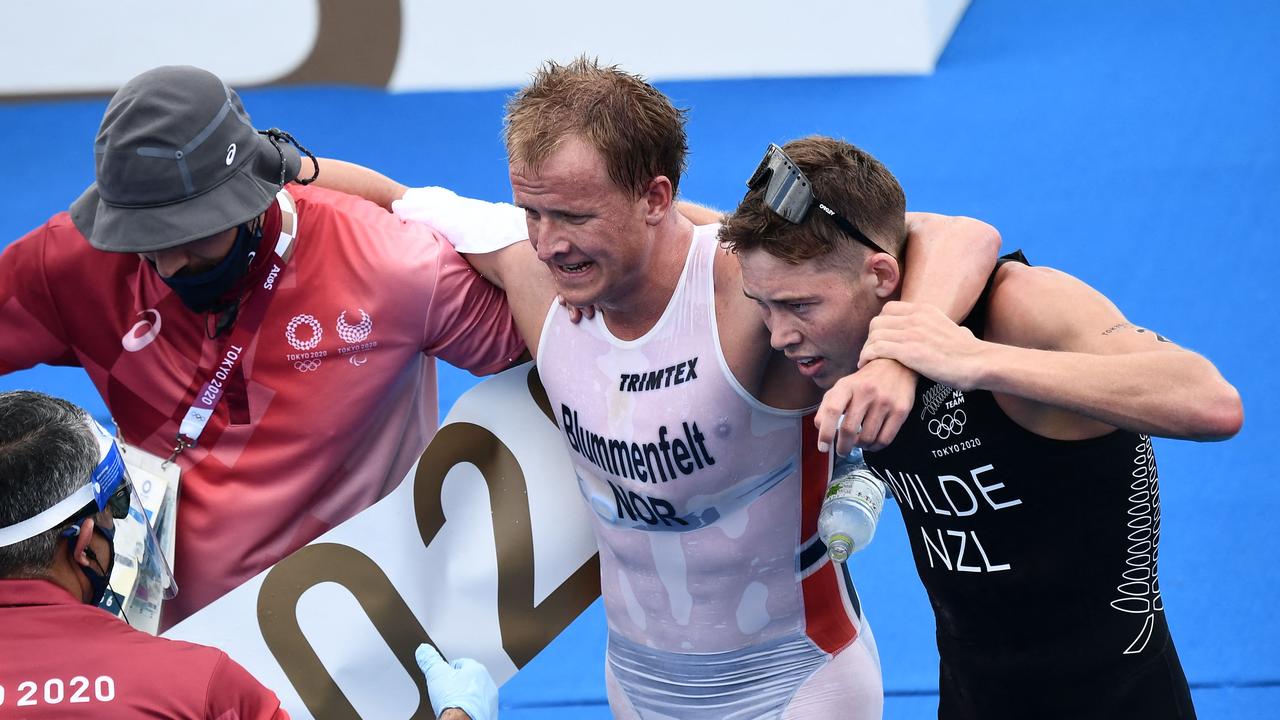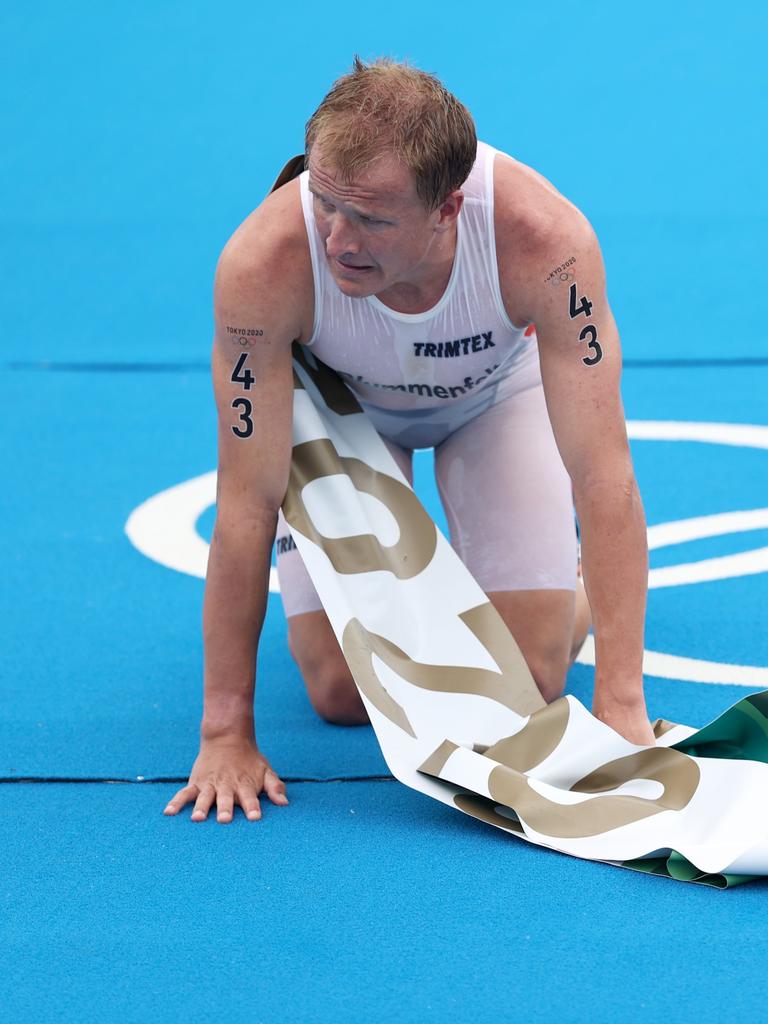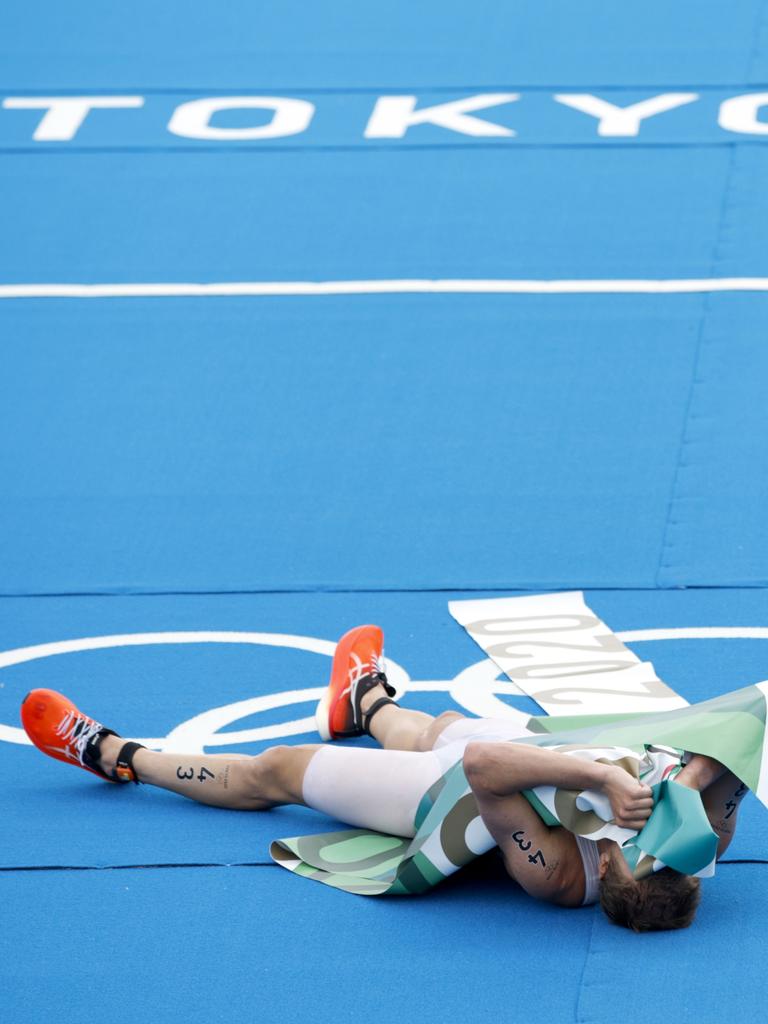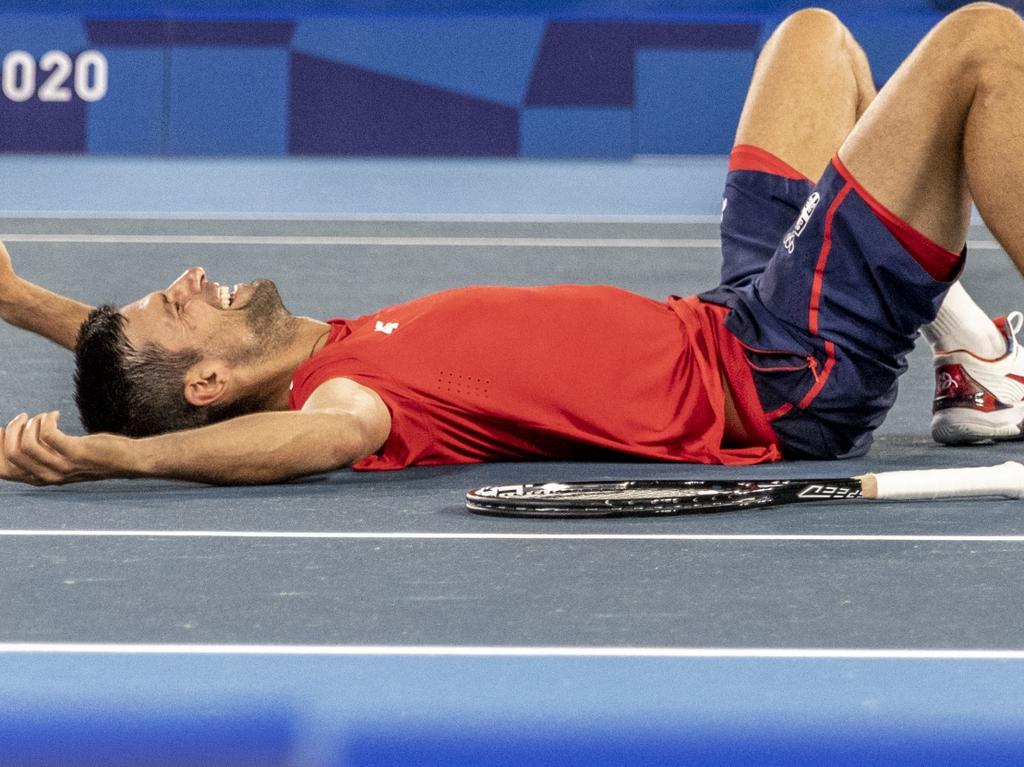World wants apology for Tokyo Olympics false claim
A document is haunting the Tokyo Olympics with the world now turning a blowtorch on a false claim exposed by absolute athlete carnage.

The Tokyo Olympics Organising Committee appeared to make false claims when submitting details about the weather conditions athletes are facing this Games.
Oppressive, muggy heat has wreaked havoc across outdoor sports.
Novak Djokovic lashed out and demanded a schedule change earlier this week, while beach volleyballers also complained about sand being too hot to stand on.
The tough conditions were particularly exposed at the end of the men’s triathlon on Monday morning, where gold medal-winner Kristian Blummenfelt collapsed over the finish line and proceeded to vomit, unable to celebrate.
He was one of several athletes to appear in distress at the end of the race.
Tropical storm Nepartak has also begun to impact events with rowing, surfing and archery events rescheduled as a result of the heavy rain and winds of up to 108km/h on Tuesday.
Tokyo’s bid application submitted to the IOC for hosting rights of the 2020 Olympics has been badly exposed by the scenes of carnage at the men’s triathlon finish line.
The application — which is available to the public — included a statement that it would be “ideal” for athletes if the event was held during July and August in the capital city.
“With many days of mild and sunny weather, this period provides an ideal climate for athletes to perform their best,” the application said.
The statement has haunted the Organising Committee ever since.
The average high in July in Tokyo is 30C and 31C in August, with the average low of just 23C-24C across those two months.
While it is nonsense to blame a tropical storm on organisers, the Tokyo officials still have plenty to answer for, according to a column from Yahoo’s Dan Wetzel.
“As athletes continue to wilt and wither in these conditions, they do owe everyone an apology for this much: They lied like hell about it,” he wrote of the conditions.
Related: See through wardrobe malfunction in triathlon


Athletes have competed in 35C heat and days of 70 per cent humidity.
The stuffy, tropical conditions are very common this time of year — something Tokyo failed to inform the world when it launched its bid for hosting rights.
The world’s attention on the false claim will come as cold comfort for the athletes in Tokyo.
Blummenfelt and fellow triathletes were pushed to breaking point during the event which was re-scheduled to an earlier 6.30am start (Tokyo time).
Djokovic also publicly demanded for tennis to be rescheduled, describing the conditions as tough.
“Playing in extreme heat and humidity that is 90 per cent or God knows how much, it’s very challenging,” he said.

“Obviously it’s the same for everyone and it’s something we’ve known coming into Tokyo, we expected that the conditions were going to be very tough, but before you come here and experience that you don’t really know how difficult it is.”
Meanwhile, Japan is continuing to be warned of heavy rain, wind and high waves over a wide area including the capital.
“In line with the current weather forecast, the schedule for the rowing and archery events due to take place on the 27th have already been changed,” Tokyo 2020 said.
“At this time, there are no plans to change the schedule for any of the other events due to be held on Tuesday.” The Games organisers said they would keep a close eye on the forecast and activate contingency plans for bad weather “should the need arise”.
The meteorological agency also referred to Nepartak as a typhoon, while the US Navy called it a tropical storm.
Japan’s typhoon season runs from around May to October, peaking in August and September.
— with AFP




